| TALES OF HEATH & POND |
VISITOR'S GUEST BOOK | HISTORY OF THE HEATH & POND | GUESTS' PHOTOGRAPHS | SOURCES OF INFORMATION | VIDEOS | SITE MAP |
Muscovy Duck
Sadly there is only one Muscovy duck on the pond, but he has a name: Eric! We don't know who gave him this name but we think that it suits him!
To see a larger copy of each image click on it; to see the next large image click at the right of the image, to go back click on the left of the image. To close a large image click on the cross in the top right hand corner.
New photographs are usually added to the bottom of the page - click to go to the bottom of this page
2020 |
||
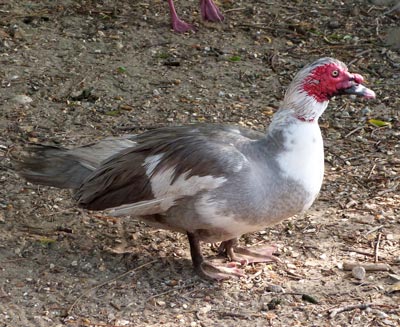 |
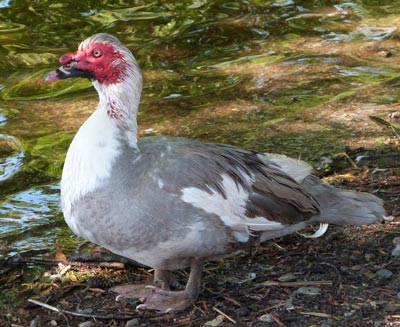 |
|
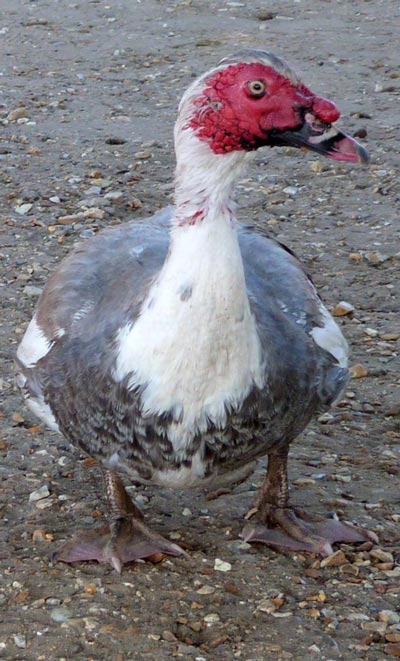 |

The Muscovy Cairina moschata domestica is a heavy species of duck that originates from central and southern America. Wild birds are shy; when cornered they can seem aggressive. This may have given them an unfair reputation. They have calm temperaments when domesticated and the Muscovy is prized as a broody. She will put her heart and soul into defending ‘her’ young of course. They are heavy-bodied birds with relatively short legs that give them a horizontal carriage. The domesticated Muscovy Duck is the only breed of duck that is not descended from the wild Mallard. Although the Muscovy is called a duck, it isn’t really a duck. They are close to ducks but not really family members. The webbed feet are unusual in that they have long claws. These claws allow them to perch up in trees – hence the name “greater wood duck”. The feet and legs are black in color. The Muscovy is a very quiet duck; they do not quack like other ducks. If upset, happy or excited they wag their tails a great deal and the males can also puff and hiss. Although they do swim, they don’t swim as much as other ducks because their oil producing glands are small and underdeveloped. |
|
 |
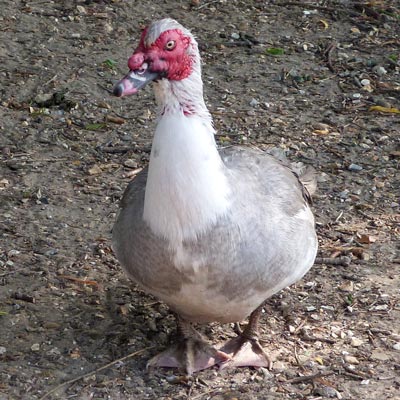 |
|
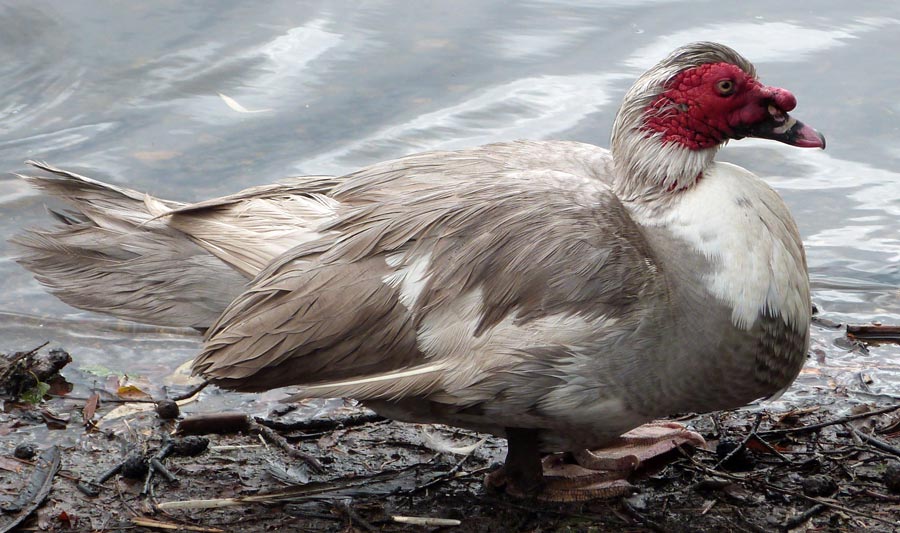 |
||
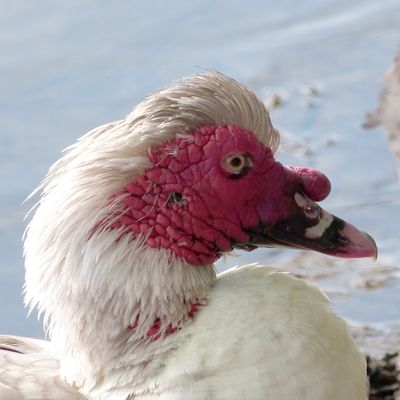 |
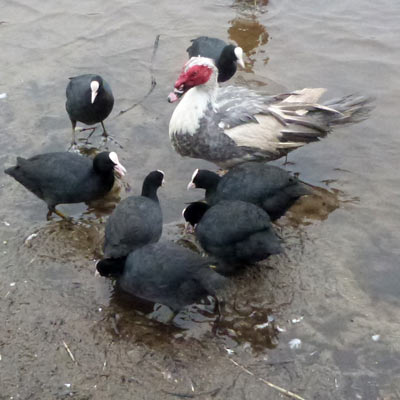 |
|
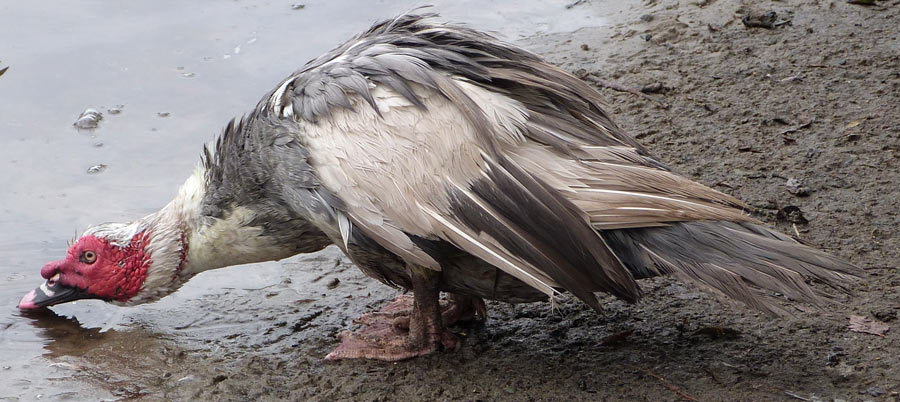 |
||
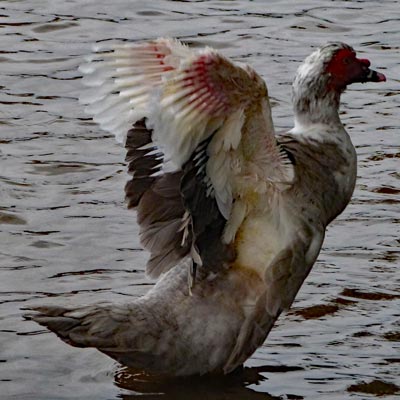 |
||
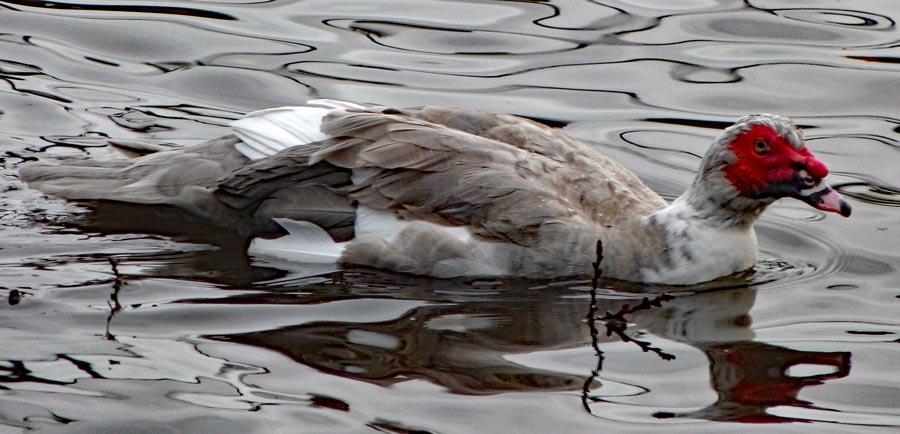 |
||
| We actually saw Eric SWIMMING! He was on the island and we watched as he swam back to the mainland! | ||
2021 |
||
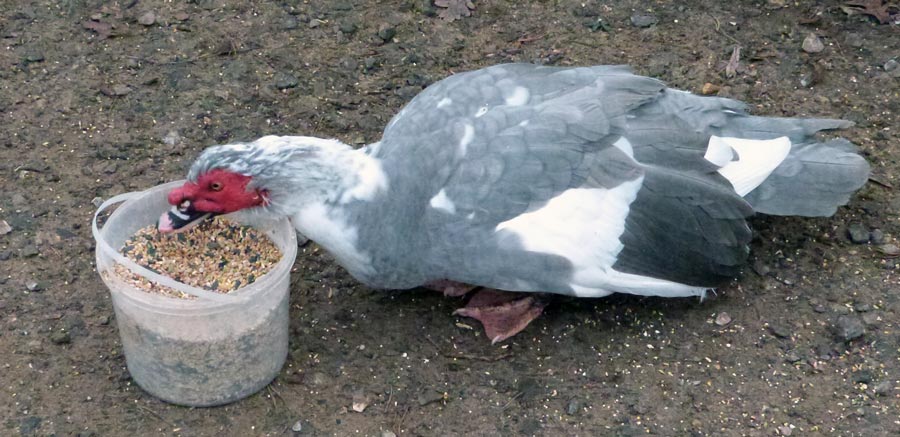 |
||
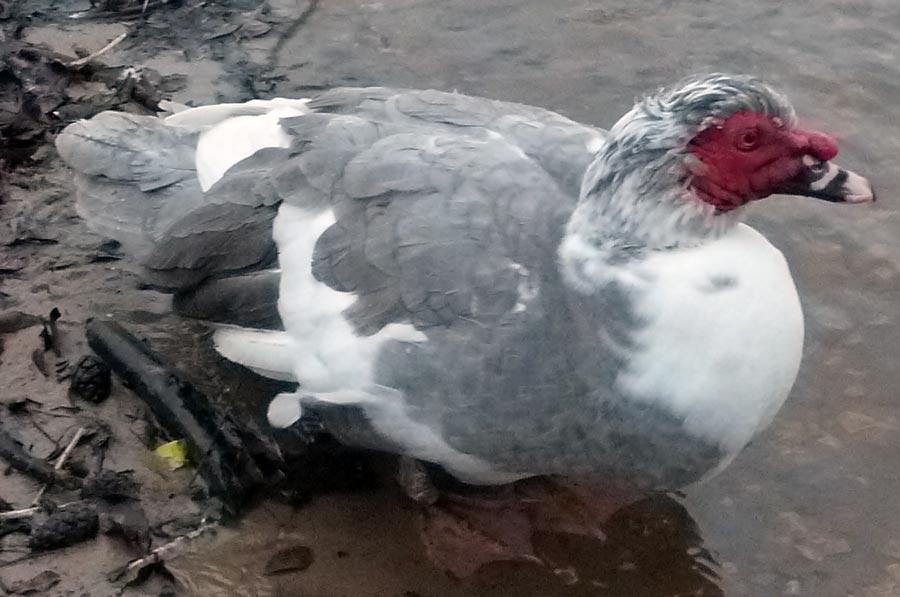 |
||
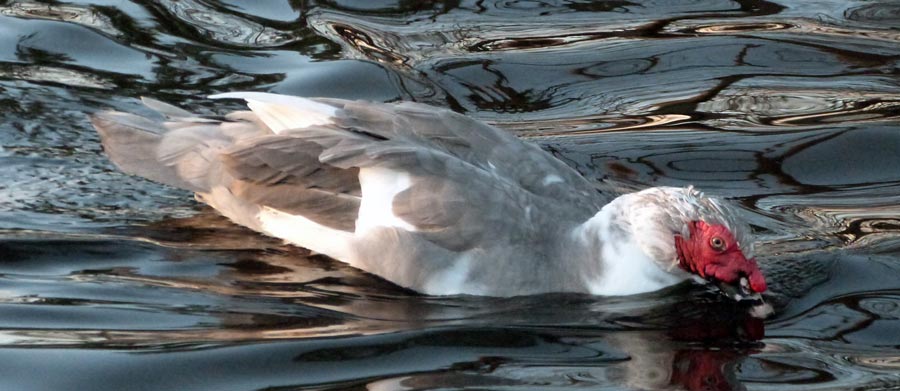 |
||
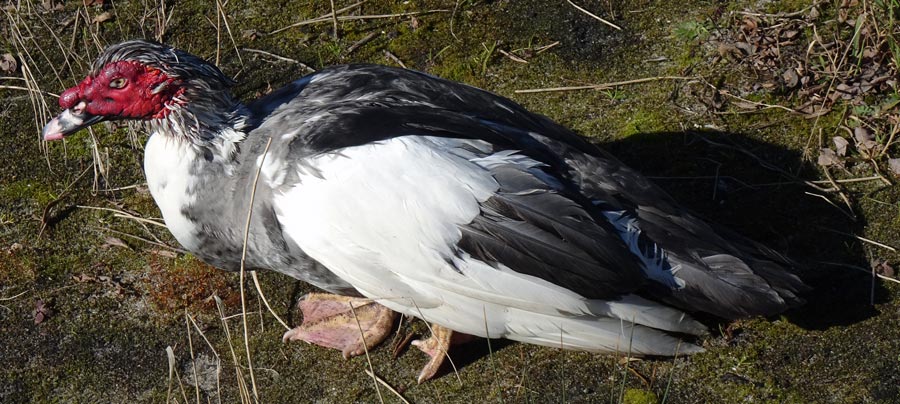 |
||
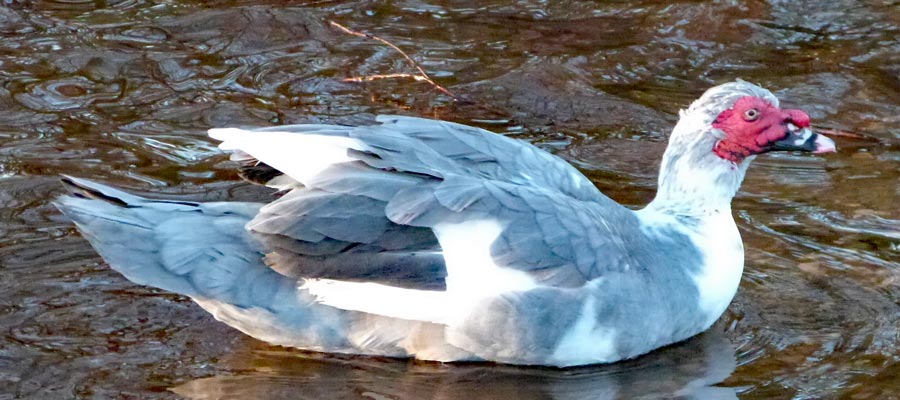 |
||
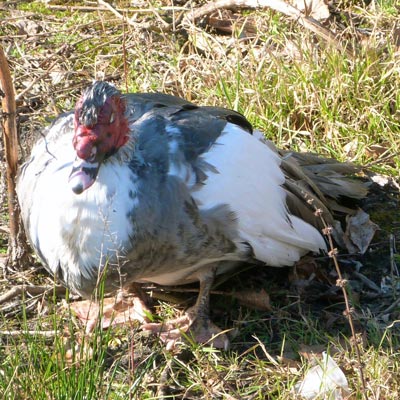 |
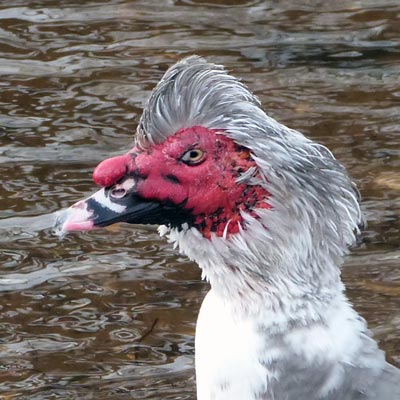 |
|
| Something made Eric raise his Crest! | ||
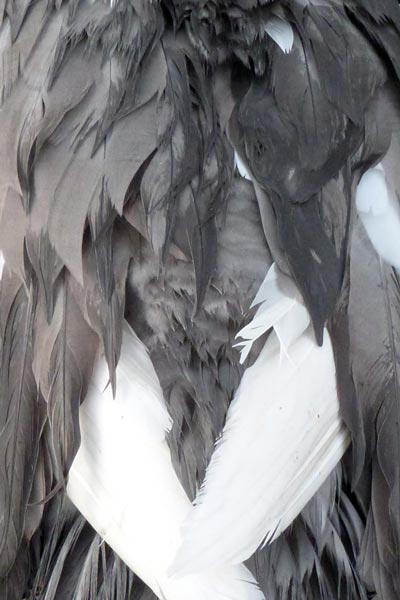 |
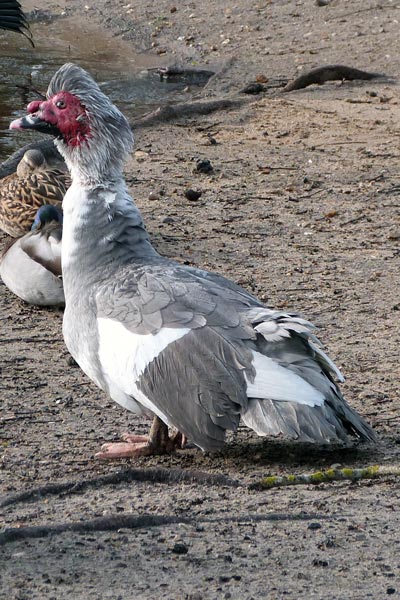 |
|
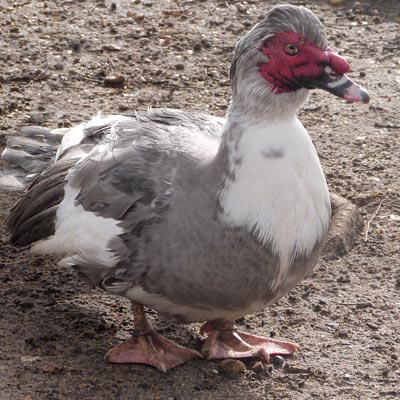 |
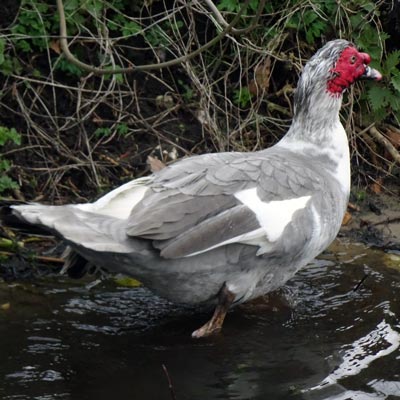 |
|
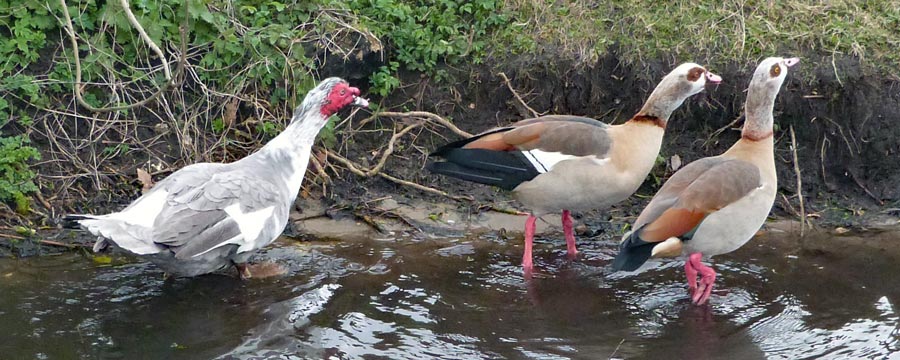 |
||
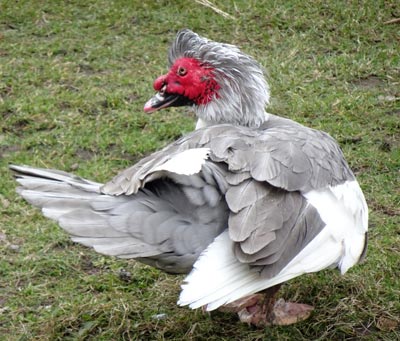 |
||
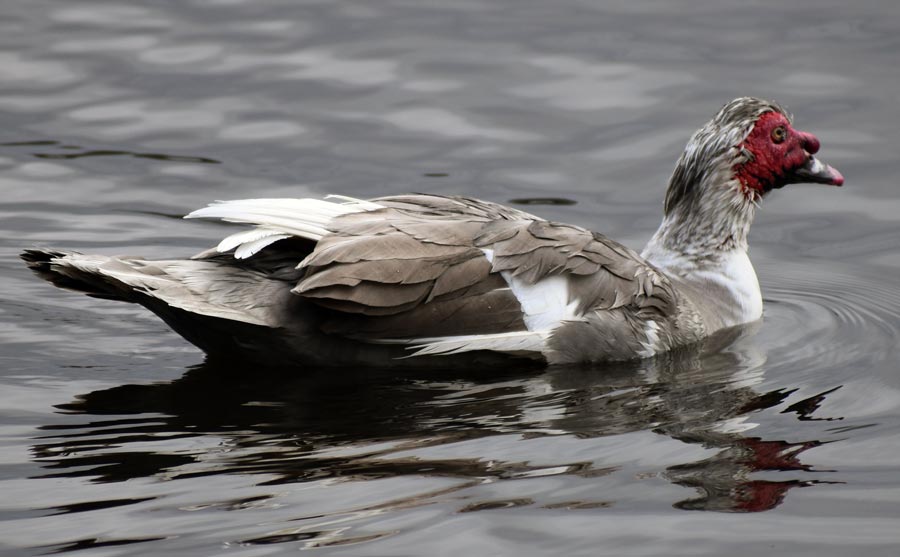 |
||
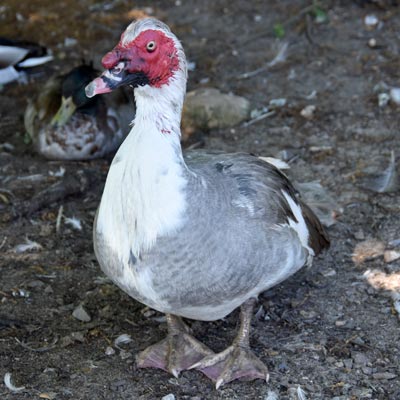 |
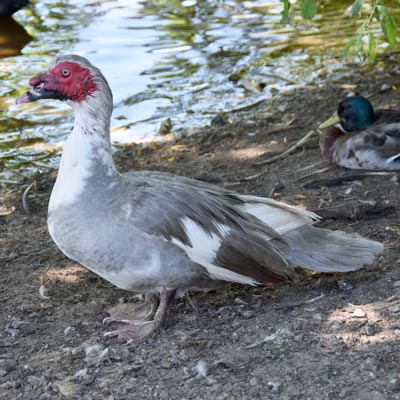 |
|
| Go to the top of this page | ||